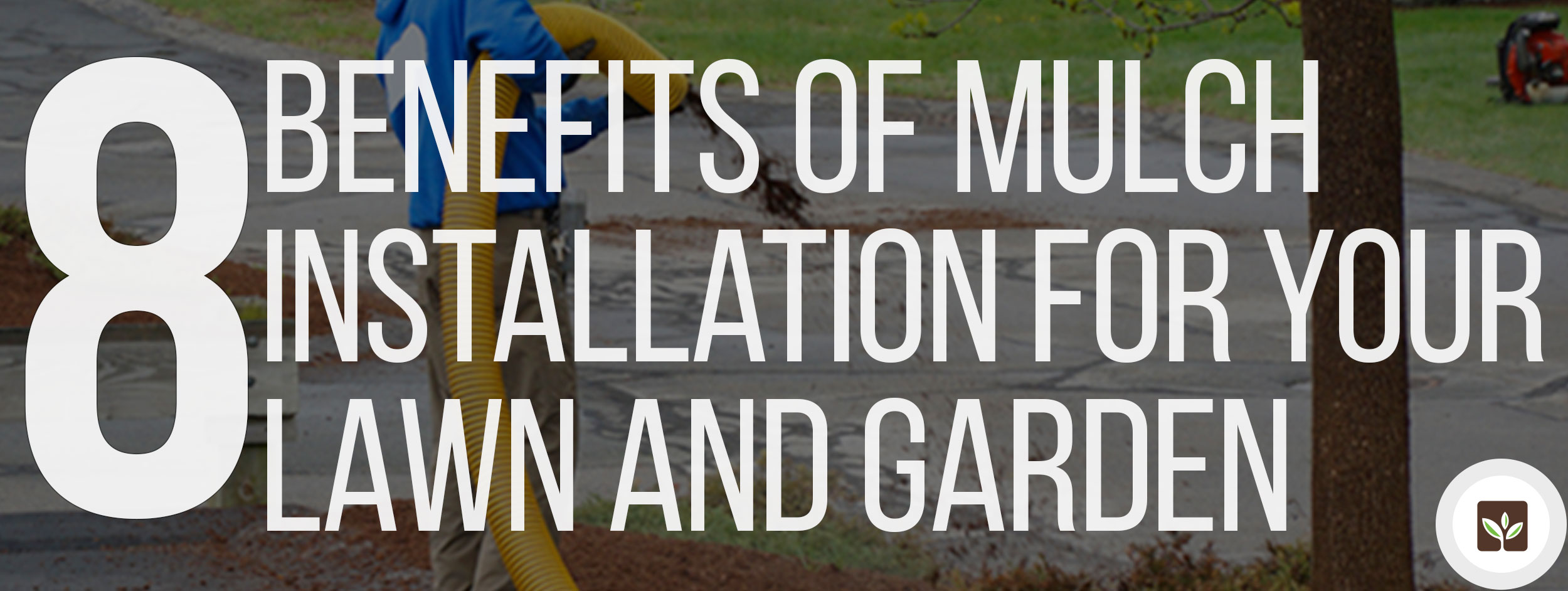
8 Benefits of Mulch Installation for Your Lawn and Garden
One of the best things that you can do for your home or commercial garden landscape is adding mulch. Professional mulch installation services typically use mulch blowers to make it even faster and standardized so your landscaping always look pristine and well taken care of.
By adding this protective barrier around your plants, you keep your soil rich and moisturized, while also ensuring that your plants grow strong. However, the type of mulch you use makes all the difference.
Here are some of the ways that mulching can help your garden:
1. Control Weeds
Mulch is best known for its ability to stifle weed growth. By adding a layer of mulch around your plant beds and trees, you can limit weed growth. Weeds typically like to spring up wherever there is an open space, but mulch protects your soil and gardens by limiting the amount of sunlight that weeds can access. It’s a win-win for those who want to get rid of weeds and use a natural solution.
2. Stop Soil Erosion and Retain Moisture
During spring rains, your soil can erode and wash away if you don’t have a preventive layer of mulch to stop it. Mulching keeps existing water in your soil, but it also breaks the fall of water on your loose soil. As water impacts the ground, soil stays in place underneath the mulch and keeps your plants safe from drowning roots.
Retain Moisture
With organic mulch like pine and bark chips, your garden soil will be able to absorb and retain more moisture. This is because mulch is used to cover soil and prevent evaporation, but it also soaks up moisture and decomposes into the soil as well. When you have a hot, dry season, organic mulch helps to cool and moisturize your soil, preventing your plants from drying out.
3. Enriches Soil Nutrients
As mulch decomposes, it adds nutrients to your soil. Whether you use shredded grass, leaves, hardwood chips, pine, or cocoa shells, your soil gains benefits from the nutrients in these other organic materials. There are some mulches with more nutrients than others. You can check out different mulch types to see what kind of nutrients they’ll add to your soil.
4. Controls Pests
If you have a problem with insects eating up your fruits and vegetables, then you may want to try different types of mulch that deter pests. Cedar bark is a popular choice because it has natural oils that repel insects. Fragrant mulch is also a deterrent to moist pests. There are also mulches that encourage insects with its scent and taste.
Straw mulches are also beneficial for keeping away cucumber beetles that tend to eat squash and cucumber plants. Cocoa bean shell mulch also deters bugs, but if you have pets, it can be toxic to dogs.
5. Encourages Earthworms
Earthworms are necessary for soil aeration, which is why it’s great to see them inching around in your soil. Organic mulch provides cover and cool temperatures, which earthworms love.
6. Tidies Up Your Gardens and Trees
Have you ever seen a landscape with colored mulch that isolates the beauty of your flowers and trees? Mulch provides a finished look to any landscape and gives color to otherwise empty spaces. For example, red mulch is the perfect color to complement your home’s exterior brick or rustic charm.
7. Increase Mycorrhizal Fungi in Your Garden
By enriching your landscapes with mulch, you also encourage the growth of mycorrhizal fungi. This type of fungi seeks out phosphates and add nutrients to your plant beds. It can also connect plants together, allowing for a higher nutrient exchange between your plants, and it supplies more water to your plants. Most of all, it improves your soil structure, allowing for more aeration.
8. Helps with Tree Health
With very young trees, mulch is always used to protect and promote growth. Landscapes say that mulch is a newly planted tree’s best bodyguard because it insulates the soil, which provides a barrier between cold and hot temperatures. Mulch also retains water, which helps with root growth, and it keeps weeds from competing with root growth. You should remove any grass around your trees before mulching, then pour natural mulch like wood chips in a 2-inch layer around the base.
However, landscapers warn not to mulch right up to the trunk of the tree. You don’t want your mulch to pile up against the tree as this can lead to pests and plant diseases.
Conclusion
Mulching is so beneficial for your home or businesses and landscaping. You won’t have to mow as much grass or water your plants as much because mulch will add moisture and add groundcover. It’s the perfect way to spruce up your lawn and add a protective barrier against many issues such as weeds and pests.